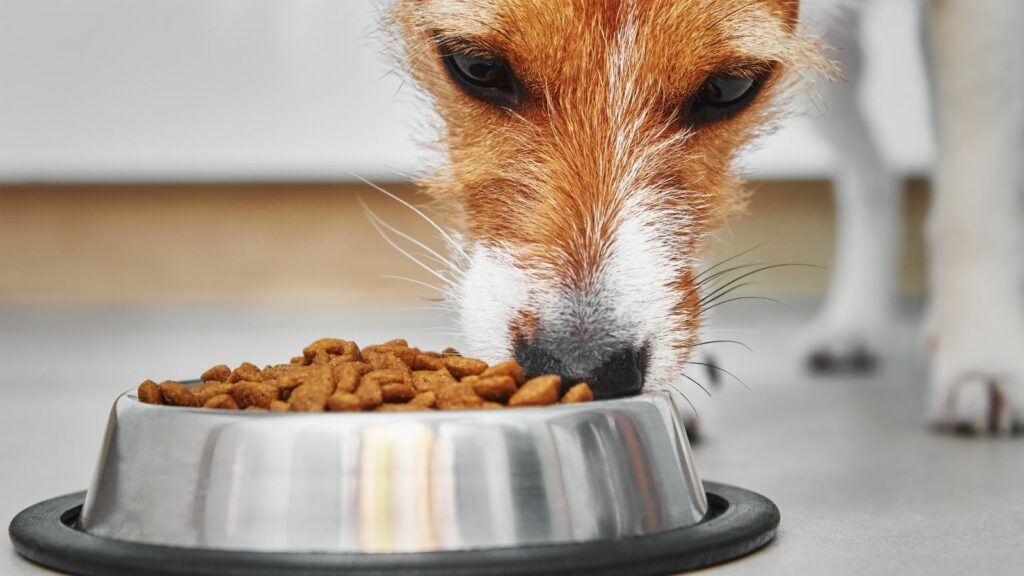In the vast world of pet nutrition, gut health dog food is rapidly gaining attention. It’s not just another fad; it’s a science-backed approach to ensuring your furry friend’s optimal health. This article will delve into the importance of gut health dog food, shedding light on its benefits and why it’s becoming an essential part of pet care.
Gut Health Dog Food

As one hones in on the relevance of gut health in dogs, a clear linkage emerges between this physiological aspect and their overall well-being. The article reveals intriguing facets of how gut health dog food abets in maintaining a favorable ecosystem of gut bacteria.
Gut health bears significant importance in dogs as it’s closely linked to their immune system. Studies show that about 70% of the immune cells reside in gastrointestinal tracts, cementing the vital role that gut health plays in a dog’s immune response. Additionally, gut health influences their metabolic process and directly impacts their behavior. For example, a study published in the journal “Microbiome” in 2017 suggested a correlation between gut bacteria and anxiety-like behaviors in dogs.
Signs of Poor Gut Health in Dogs

Indicators of deteriorating gut health in dogs range from digestive issues to changes in behavior. A dog experiencing poor gut health may frequently suffer from diarrhea, vomiting, or less obvious signs such as gas and bloating. Behavioral changes, including listlessness and excessive licking, also serve as signs. For example, an Australian veterinary study pointed out that chronic enteropathy, a gastrointestinal disease, is often linked with behavior changes in dogs.
With the signs clarified, employing an ideal gut health dog food becomes pertinent to maintain an optimal gut environment and ensure a healthy, happy life for our four-legged companions. A balanced diet packed with necessary prebiotics and probiotics can create an environment conducive for the gut bacteria to thrive, fostering better health and mood in our pets.
How to Choose the Right Gut Health Dog Food
Selecting the appropriate gut health dog food involves careful scrutiny of labels, consideration of your pet’s age, and understanding specific health conditions.
Reading Labels and Ingredient Lists
Investigating labels and ingredient lists is crucial in picking the right gut health dog food. Look for primarily natural ingredients, and avoid products with large numbers of artificial additives or by-products. The first few ingredients should be specific proteins, as they constitute the majority of the product. For enhanced gut health, ensure probiotics such as Lactobacillus casei or Bifidobacterium animalis are listed.
Foods with dietary fibers, both soluble and insoluble, play a vital role in promoting gut health. Examples include beet pulp, rice bran, and inulin, facilitating digestion and fostering the growth of beneficial gut bacteria.
Considering Your Dog’s Age and Health Conditions

A dog’s nutritional needs fluctuate across different life stages and various health conditions. Puppies require foods enriched with essential nutrients to support their growth and development. On the other hand, older dogs might benefit from low-fat, high-fiber diets to manage weight and maintain a healthy gut.
Concerning health conditions, dogs with a history of gut issues might need diets high in prebiotics and probiotics. Similar considerations apply to obese dogs — a high-fiber diet can control weight and foster gut health. Always consult the veterinarian for definitive diet modifications to cater to specific health conditions.
Prioritizing Gut Health for Your Dog
Optimal gut health plays a pivotal role in a dog’s overall well-being and behavior. It’s crucial to choose gut health dog food that’s rich in probiotics such as Lactobacillus casei and Bifidobacterium animalis, as well as dietary fibers. Reading labels for natural ingredients and probiotics ensures the right choice for your pet’s health. Tailoring diets based on a dog’s age and health condition can also make a significant difference. Whether it’s essential nutrients for puppies or high-fiber diets for older or obese dogs with gut issues, it’s all about understanding your pet’s needs.

